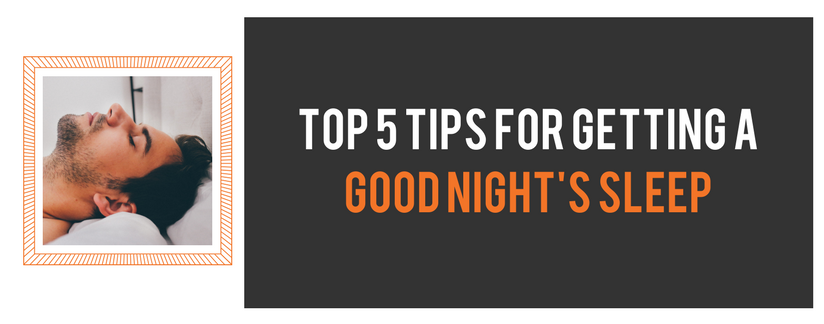GET IN TOUCH TODAY!
"*" indicates required fields

Exercise and good sleeping habits go hand in hand. An improvement in one often leads to an improvement in the other, and compromising one can have a negative effect on the other.
It’s during sleep that our body recuperates and repairs and a good night’s sleep will allow you to develop into a healthier and stronger individual – but sometimes, with so much on our minds, falling asleep at a sensible hour can be a nightmare (no pun intended).
Some may fall asleep easily but wake early; others can just spend the entire night waking up at different intervals. But this need not be the case – there are plenty of steps you can take to improve quality of sleep. So without further ado, here are our….
1. Avoid caffeine, alcohol, and nicotine
Caffeine and nicotine are stimulants and therefore speed up your nervous system. This makes you more alert which is not exactly how you want to feel when you are trying to catch some zzzzzz’s. Try to refrain from using these within six hours of bedtime. Drinking copious amounts of alcohol may actually induce sleep but it’s not the sort of sleep we are after. It’s time for repair and recovery of the muscles not the liver. Although a night cap may relax you and enable you to get to sleep it can later in the night make you restless. Don’t forget the quality of sleep is important so best to fall asleep naturally.
2. Turn your bedroom into a sleep-inducing shrine
Your bedroom should be an environment mainly designated to sleep. So much so that when you enter your bedroom you instantly feel like having a kip. It should be quiet, dark, and cool. If necessary buy blackout curtains, wear an eye mask and ear plugs. Anything you can do to achieve that sleeping environment will be worth it. Also, if a pet regularly wakes you during the night, you may want to consider keeping it out of your bedroom. I suggest limiting your bedroom activities to just sleep. Oh and sex of course. Keeping computers, TVs, and work materials out of the room will strengthen the mental association between your bedroom and sleep.
3. Maintain a pre-sleep routine
In the period leading up to bedtime it’s no use playing a few games of Call of Duty online or watching the Exorcist and then expect to fall asleep instantly afterwards. The hour leading up to bedtime should be spent doing relaxing activities such as: having a bath (the rise, then fall in body temperature promotes drowsiness) or reading a book. Avoid stressful, stimulating activities. Ladies next time you get into bed and turn to your partner and say ‘we need to talk’ when he replies ‘this isn’t a good time. He is actually right. Physically and psychologically stressful activities can cause the body to secrete the stress hormone cortisol, which is associated with increasing alertness. If your thinking things over in bed, try writing them down and then putting them aside.
4. Set your internal clock and don’t adjust it
Going to bed at the same time and waking at the same time each day will help ensure better quality and consistent sleep. Once you set your “internal clock” try to stick as closely as possible to it. Even on weekends which will help avoid a Monday morning sleep hangover. Waking up at the same time each day is the very best way to set your clock.
5. Have a nap
There is nothing wrong with a good power nap. In fact, several studies have shown they can be good for stress release, improved concentration, recovery from training sessions and muscle growth. However, they shouldn’t exceed 1 hour and should not be taken later than 5pm. Longer naps allow you to fall into a deeper sleep that will leave you feeling groggy after waking. Napping after 5pm can decrease your sleep drive making it difficult to get to sleep and stay asleep.
So make getting a good night sleep a priority for you, especially if you are serious about your training and want the best results.